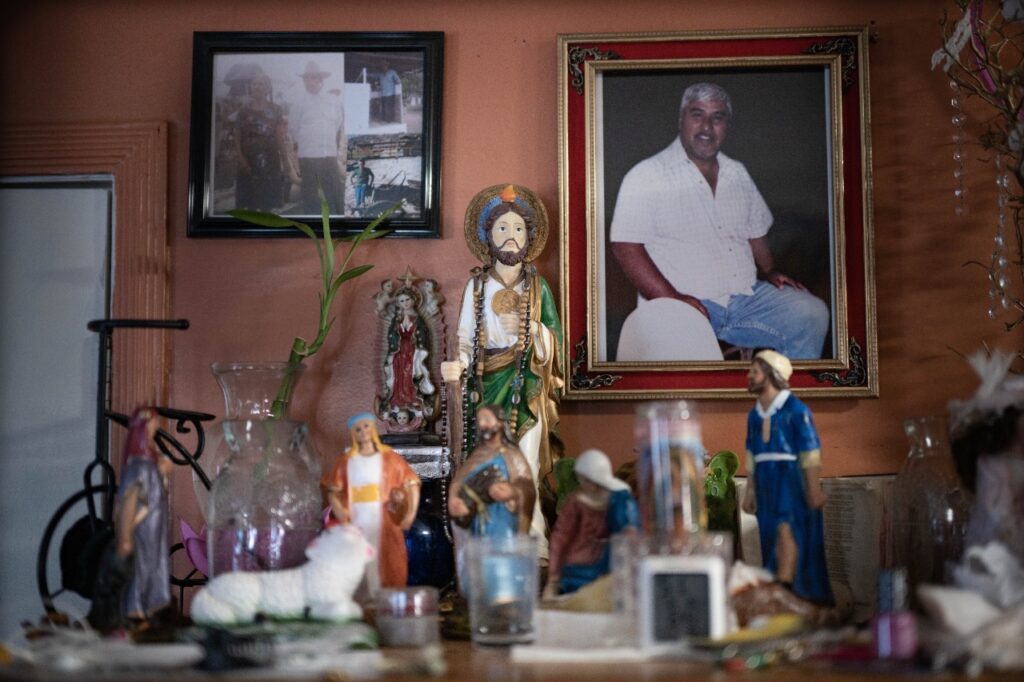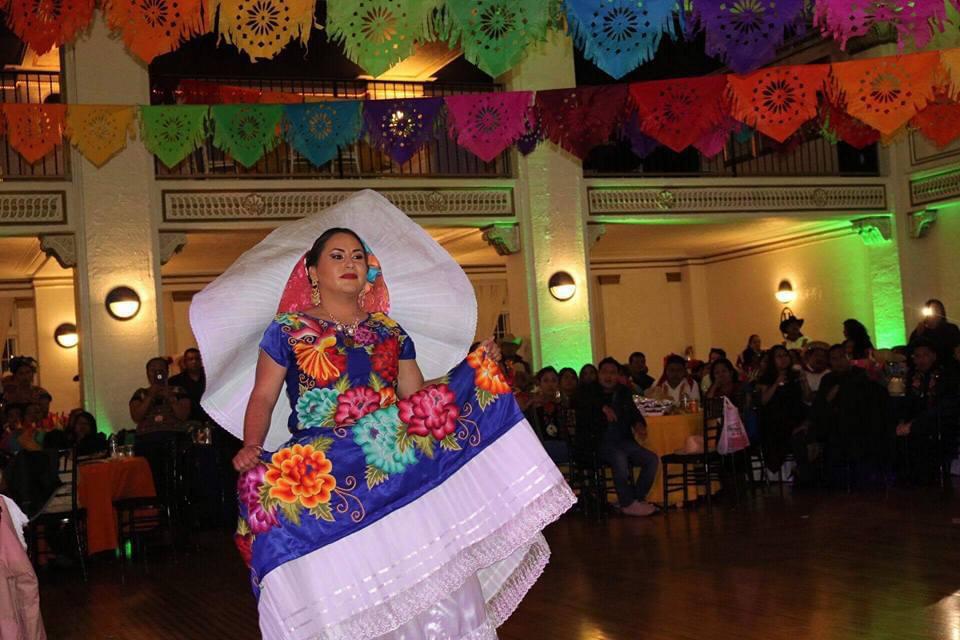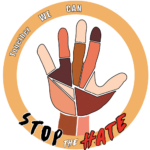«Noelia Rosales, 38 years old, trans woman at her home in Los Angeles, California, where she has forged a life since she arrived at the age of 15. The United States has been, in addition to his home, a place of refuge and survival in the face of the hatred of people from the LGBTQ+ community» Photo: Manuel Ortiz
Text: Constanza Mazzotti in collaboration with Manuel Ortiz
Noelia Rosales recounts her story of resilience that has taken place for twenty years in Mexico and Los Angeles, California, with soft but hardened words. «Maybe, if I had decided to stay in my country, maybe I wouldn't be me, » she states.
It's not just any life, reflects Noelia when she lets her gaze get lost in the memories that take her back to where she started her transition. Since then, she has survived at least two critical attacks and learned how harsh the law is in North America.
It was at the age of 15 that, furnished with the will of an older cousin who helped her and with a power of attorney signed by one of her parents, she decided -in her words- to flee her native Las Margaritas in San Pedro Totolapan de Oaxaca, Mexico to Los Angeles, California.
To leave is not something to be taken lightly, especially from an early age, one acquires the idea that it is the flight where one must start one's path, explains Rosales.
Reaching American land was the opposite of what one would imagine; the so-called principle of freedom in this longed-for territory is, in fact, the persecution of what is different. That persecution does not stop at the borders.
Noelia, of Mexican origin, and at a very young age, learned to protect herself from harassment and bullying. Constant mistreatment in her native Oaxaca by her classmates, teachers, and adult relatives.
The recrimination for not following the traditional way has a name. Noelia, like many others in her shoes, has had to endure hate everywhere, including Mexico and the United States.
Obscene words, mocking looks, and awkward silences that escalate to provocations and even to physical acts of violence against her, such as beatings disguised as assaults are what The United States Department of Justice as a hate incident or bias as well as a hate crime.
The incident of hate or bias is defined as «bias acts that are not crimes and do not involve violence, threats or property damage,» while the hate crime is, at the federal level, «a crime committed for reasons of race, the color of skin, religion, national origin, sexual orientation, gender, gender identity or disability. »
Likewise, within the categories of biased motives, only in 2020 incidents were committed by race, ethnicity, and ancestry at 61.8%, by religion at 13.3%, by sexual orientation at 20.0%, by gender identity at 2.7%, by disability at 1.4% and by gender 0.7%.
Noelia discovered that the types of incidents she has experienced are not only due to sexual orientation and gender identity but also due to race and ethnicity.
In the same way, she learned from all of them thanks to the different organizations she approached after her first unjust encounter with the law.
«They say that everything happens for a reason, » and for Noelia, what happened, in addition to discovering her rights as a gay man and later as a trans woman, managed to create a community and access to education and health programs.
These communities not only helped Noelia to assert her rights and take care of herself, but they are a space and support network for the entire LGBTIQ+ community.
Thanks to the support received, Noelia has had outstanding achievements. In 2016, at the age of 31, she decided to start her gender change and was named Queen Muxe in Los Angeles, California.

«Living as a trans in Los Angeles has made it a little easier for me,» she comments, «because I feel that when I started being a gay man, I felt that on the train or in the subway, there is much more discrimination as a man than as a trans woman. »
There is a difference in the type of discrimination against a gay person. The perception is that if you are an effeminate man, people criticize you more than if they see you as a woman.
«But we are the only one who knows what our process and suffering are like. As much as one wants to explain it, there is no way for them to understand us because first, you have to live through it. »

The depth of her words about life and respect for the other lead her to exchange glances with her interlocutor, to whom she confesses her definition of love.
«I believe that love is what comes from when you are educated. That's why I treat my nephews with affection. If I had children,» she continues «I would educate them to accept people as they are.»
And she throws the question into the air looking for the answer: «Or, what do you think?»


This publication was supported in whole or part by funding provided by the State of California, administered by the California State Library.

You may be interested in: 7 Bay Area School Districts Recognized for Supporting LGBTQ+ Students




